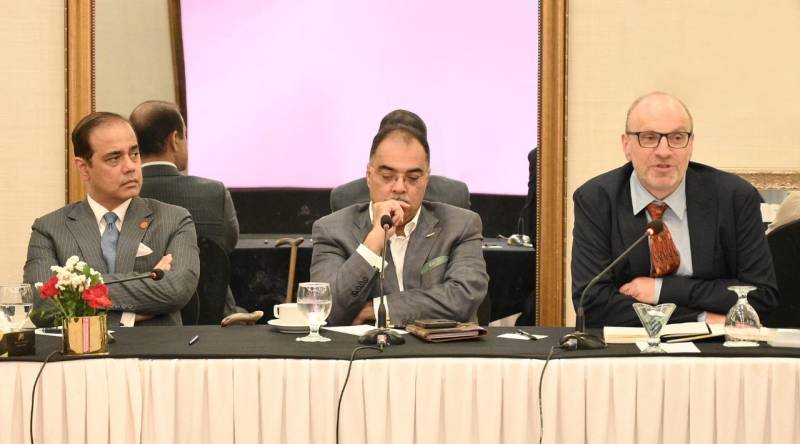
PRESS RELEASE
The Bank of Punjab held an interactive session of Professor Stefan Dercon with local industry leaders in Karachi this week. Mr. Stefan is a Professor of Economic Policy at the Blavatnik School of Government and the Economics Department, at the University of Oxford. He combines his academic career with work as a policy advisor, providing strategic economic and development advice.
His latest book ‘Gambling on Development: Why some countries win and others lose’, published in May 2022, draws on his academic research as well as his policy experience across three decades and 40-odd countries, exploring why some countries have managed to settle on elite bargains favoring growth and development, and others did not.
Professor Dercon is engaged with key stakeholders at the highest level of policy making to review the strategic economic plans of the Government and incorporate international best practices. He is driving the ‘Committee on the Home-Grown Economic Plan’ for the Government of Pakistan, and advising the Government on developing and implementing a medium-term reforms agenda that will support economic growth through higher international trade and greater private sector participation for job creation and poverty alleviation. These reforms will support the economic stabilization policies outlined by the government in the IMF EFF agreement.
During the discussions, Professor Dercon highlighted areas of critical reforms for the economy. He emphasized the current structure of the economy distorts the allocation of resources, stifling productivity growth. He also highlighted the anti-export bias of the policies and the need to move the economy away from import substitution towards export-led growth. He stressed on the need for corrective actions to improve the investment climate, boosting private and foreign investments in the economy.
Professor Dercon shared examples of successful policy implementation in other developing countries and lessons for Pakistan. Drawing on his experience of working in 40 countries, Professor Dercon shared insights that government policy must take into account the distributional consequences of measures and factor in risk mitigating measures on implementation constraints and political economy challenges.
Mr. Zafar Masud, CEO of the Bank of Punjab, welcomed Professor Dercon and the business community to the event. He shared the details of the work being undertaken, including the implementation plan and the economic impact assessment, by Mr Dercon with the Government of Pakistan as part of the ‘Committee on the Homegrown Plan’.
The event was attended by senior business and private sector leaders in Karachi from a cross section of industries. The talk was followed by Q&A session, where business leaders shared their insights with Professor Dercon and highlighted how public policy is impacting their business.

